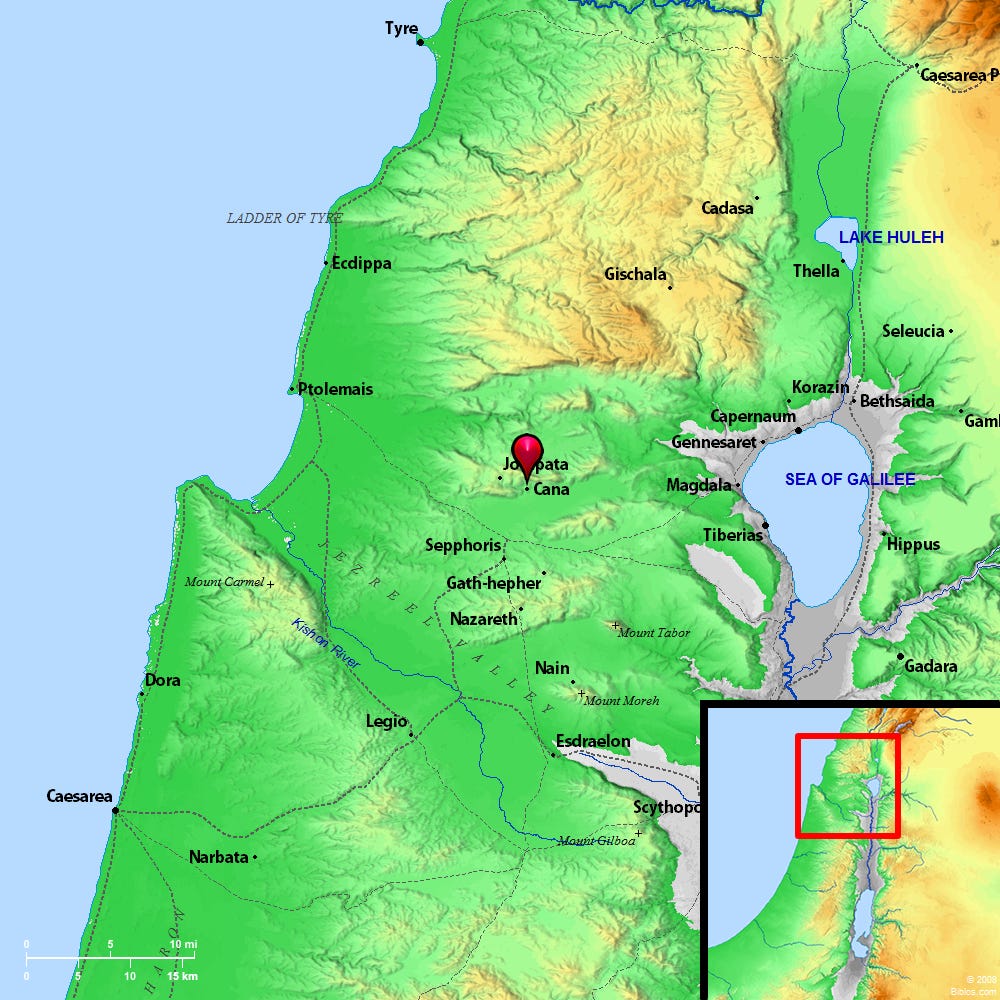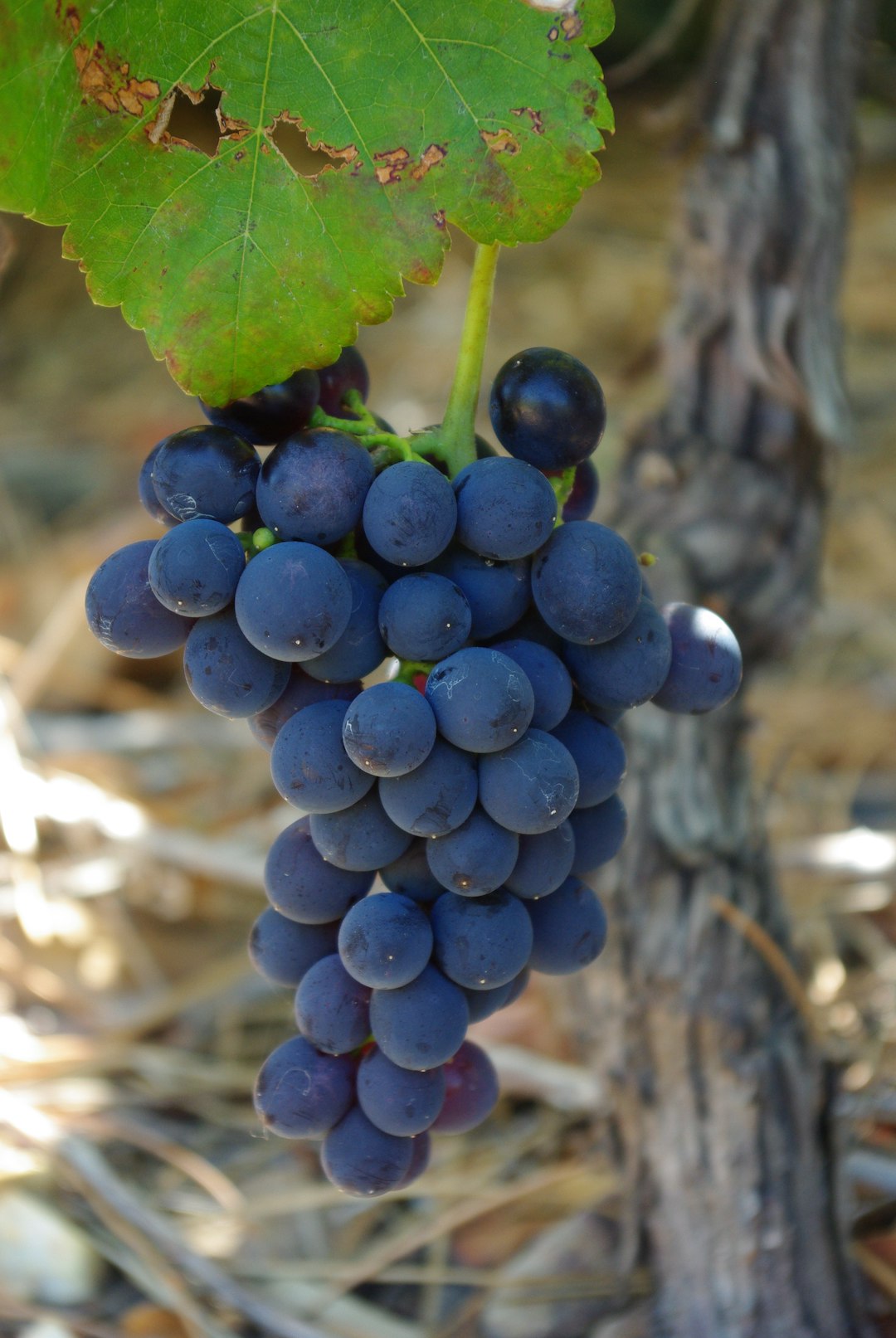The Miracles of Jesus Part 1: Water to Wine
John 2:1-11, Luke 7:33-34 Do what Jesus says, obey to the fullest, know that He gives abundantly, and anticipate the best that is coming with our Lord.

“On the third day there was a wedding in Cana of Galilee, and the mother of Jesus was there; and both Jesus and His disciples were invited to the wedding. When the wine ran out, the mother of Jesus *said to Him, “They have no wine.” And Jesus *said to her, “Woman, what does that have to do with us? My hour has not yet come.” His mother *said to the servants, “Whatever He says to you, do it.” Now there were six stone waterpots set there for the Jewish custom of purification, containing twenty or thirty gallons each. Jesus said to them, “Fill the waterpots with water.” So they filled them up to the brim. And He said to them, “Draw some out now and take it to the headwaiter.” So they took it to him. When the headwaiter tasted the water which had become wine, and did not know where it came from (but the servants who had drawn the water knew), the headwaiter called the bridegroom, and *said to him, “Every man serves the good wine first, and when the people have drunk freely, then he serves the poorer wine; but you have kept the good wine until now.” This beginning of His signs Jesus did in Cana of Galilee, and manifested His glory, and His disciples believed in Him.”
John 2:1-11 NASB1995
The first recorded miracle of our Lord is the transformation of water in purification water pots into a fine wine, as found in the beginning of the second chapter of the Gospel of John. This is also the first sign of seven that John records in his Gospel. As many times as I have read this story, I was stunned to see in various commentaries all of the nuances and lessons that we can learn.
First, John says that this was the third day. If you go back to the first chapter of the Gospel of John, he describes the previous days as the gathering of the first disciples, including himself, Andrew, Simon Peter, Philip and Nathanael (also known as Bartholomew). It doesn’t say that John’s brother James is there among the group yet, although the other Gospels do show James as an early follower. Jesus wants to travel towards the Galilee area and, on the third day after Nathanael joins the group, they arrive at this wedding in Cana, a small town west of the Sea of Galilee and north of Nazareth. The map shown below (from Precept Austin) shows the likely location. Jesus and His disciples were invited to the wedding and His mother is there as well.
Mary must know the people at the wedding quite intimately, or at least knows the serving staff, because she gleans the fact that the wine has run out. A typical Jewish wedding in those days lasted for several days and running out of “hospitality” (e.g., wine, food) could forecast an unhappy marriage and also be dishonorable to the families. Mary makes a simple statement to her Son that they are out of wine. His reply is quite telling, in that it establishes a new relationship with His human mother. Here’s what some Biblical scholars say about this response, as found in Enduring Word:
“He will indeed take action, as she was so very sure He would when she told the servants to do whatever He told them, but He will act in His own way, for His own reasons, and at His own time.” (Randolph Tasker)
“Jesus in His public ministry was not only or primarily the Son of Mary, but ‘the Son of man’ who was to bring the realities of heaven to men. A new relationship was established. Mary must not presume.” (Henry Morris)
“With all loving respect, he yet very decidedly shuts out all interference from Mary; for his kingdom was to be according to the spirit, and not after the flesh. I delight in believing, concerning the mother of Jesus, that though she fell into a natural mistake, yet she did not for an instant persist in it; neither did she hide it from John, but probably took care to tell it to him, that no others should ever fall into similar error by thinking of her in an unfitting manner.” (Charles Spurgeon)
Also, most Biblical scholars (and I read many for this devotional) agree that “My hour has not yet come” is in reference to the hour of His crucifixion. Jesus has agreed between Him and the Father to begin the journey on that road with this wedding miracle.
Mary’s next comments are among the few words from her actually captured in Gospels after Jesus is grown. She turns to the servants and makes a statement of incredible faith and trust in the Lord: “Whatever He says to you, do it”. Mary’s words point to Jesus and to complete obedience to His commands. These are words we should repeat to ourselves every day. Whatever Jesus tells us to do, we DO IT! This also implies that Mary knew the servants well, in that she could make this kind of statement and they would instantly obey Jesus (they probably knew Him, too. His reputation was already starting to spread around the region).
The stone jars were used for purification rituals. Stone is less likely to become contaminated, unlike clay pots and my photo that I selected shows an example of a nice stone jar. These jars were also quite big, holding about 20-30 gallons each. Jesus tells them to fill the jars with water and the servants instantly obey, filling each jar to the rim. Notice that Jesus does not add the water to the jars Himself, but allows the servants to do some of the work that leads to the miracle and to the blessing that follows. Also, by filling each jar to the brim, nothing can be added to the water and their obedience in following His command is complete. The water will be transformed. From Enduring Word, Guzik references Charles Spurgeon on how these actions of the servants is a pattern for our faith:
This is a pattern for our faith and obedience. “When you are bidden to believe in him, believe in him up to the brim. When you are told to love him, love him up to the brim. When you are commanded to serve him, serve him up to the brim.” (Spurgeon)
Jesus now commands the servants to draw out some from the jars and take it to the head waiter for tasting. The servants obey, knowing that the head waiter would be furious if they brought him water for tasting. The servants know that something has happened. The head waiter, who is oblivious to these events, tastes the wine and immediately asks the bridegroom why he waited to serve the best wine last.
Now think about the process for creating wine. Without going into a long dissertation on viticulture and wine-making (oenology), the process requires excellent grape vines planted for the climate (it sometimes takes three years for a vine to produce), proper cultivation and harvesting of the grapes, fermentation, aging (in various types of receptacles) and bottling (I’m sure I’m skipping a few steps). It was quite similar two thousand years ago, except the fermentation relied on natural yeasts and the wines were probably put in stone or clay jars or wine skins to age or for storage. Jesus, the Creator of the Universe and the Son of God, miraculously bypasses all of these natural and time-consuming processes and the result is not just a so-so table wine suitable to the last days of a wedding party, but a fine wine, probably like the wine that will be seen and tasted at the Great Banquet.
There was likely enough wine created that it was profitable for the bride and groom (they could sell it), showing the abundance that comes from our Lord. There are some denominations who believe that He created grape juice or some other non-alcoholic beverage to justify their beliefs, but Jesus was not a Nazarite (Nazarene, yes). He created wine from water and He also enjoyed wine with His disciples and others up to the night of the Last Supper. In fact, he was accused of being a drunkard by the Pharisees, as Jesus said in the Gospel of Luke:
“For John the Baptist has come eating no bread and drinking no wine, and you say, ‘He has a demon!’ The Son of Man has come eating and drinking, and you say, ‘Behold, a gluttonous man and a drunkard, a friend of tax collectors and sinners!’”
Luke 7:33-34 NASB1995
I, too, am a fan of fine wines and enjoying them in moderation with good food is one of the many blessings of provision from God. Finally, another principle that comes from serving the best wine last for believers is seen in this commentary from Enduring Word:
You have kept the good wine until now! There is a principle behind these words; the principle that for the people of God, the best is always yet to come.
“I can conceive you, brethren, in the very last moment of your life, or rather, in the first moment of your life, saying, ‘He has kept the best wine until now.’ When you begin to see him face to face, when you enter into the closest fellowship, with nothing to disturb or to distract you, then shall you say ‘The best wine is kept until now.’” (Spurgeon)
Jesus has shown His disciples His first sign at a very happy occasion and they believe in Him. He should always be the honored guest at any wedding between believers, because then that marriage will be strong in Christ.
My next devotional examines the healing of the son of an official from Capernaum, as documented in John 4.
Heaven on Wheels Daily Prayer:
Dear Lord - I stand in awe of your power and glory and provision and love, as manifested in this first miracle at the wedding in Cana. Guide me to be obedient to you in the fullest, not leaving any space between You and me as I walk in your Word. The disciples believed and I have faith that the best is always yet to come. Amen.
Scripture quotations taken from the (NASB®) New American Standard Bible®, Copyright © 1960, 1971, 1977, 1995 by The Lockman Foundation. Used by permission. All rights reserved. lockman.org
Commentary by David Guzik on Enduring Word is used with written permission.




